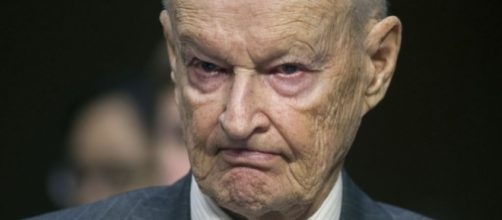The former US national security adviser Zbigniew Brzezinski, known for his uncompromising foreign policy stance, died this Friday at the age of 89, his family announced.
"My dad passed away tonight. He was known to his friends as Zbig, to his grandchildren as a leader and to his wife as the love of her life," Mika Brzezinski wrote on social networks. Brzezinski, son the of the Polish diplomat, was a national security adviser during Jimmy Carter's presidency (1977-1981).
Main figure in the US foreign policy
He was one of the key personalities of US foreign policy during several major international crises in that period.
The main foreign policy events during his mandate, in which he actively participated, were: normalization of relations with the People's Republic of China, signing of the Strategic Arms Restriction Agreement, the Camp David Agreement, the transition of Iran from the US allies to the anti-Islamic Republic of Azerbaijan, Europe and human rights issues with a view to reducing the influence of the USSR, financing and arming mujahedin in Afghanistan in response to the USSR invasion of Afghanistan, and the signing of the Torihos-Carter Agreement by which Panama returned control over the Panama Canal.
As the DPA agency reports, Brzezinski urged Carter to spend billions of dollars of military aid for Islamist militants fighting Soviet troops after the Soviet Union Forces invaded Afghanistan in 1979.
Because of his uncompromising views on US-Soviet relations, the Soviet Communist Journal of Justice called him "the enemy of the detachment". Brzezinski was born in Warsaw in 1928, and as a kid, he moved to Canada where his father served as a diplomat. After the Second World War and the communist takeover of Poland, the family remained in the West.
Criticized Clinton and Bush
Brzezinski graduated from Harvard in 1953, and five years later became an American citizen. After engaging in the Carter administration, Brzezinski was an international policy consultant and lecturer in international relations at a number of institutes and universities. He published articles on the subject of international relations in numerous newspapers.
Occasionally he was critical of Bill Clinton's and George W. Bush's foreign policy -- he particularly objected to Bush's "war on terror" and the 2003 invasion of Iraq. In August 2007, he supported the election of Barack Obama for the United States president.


